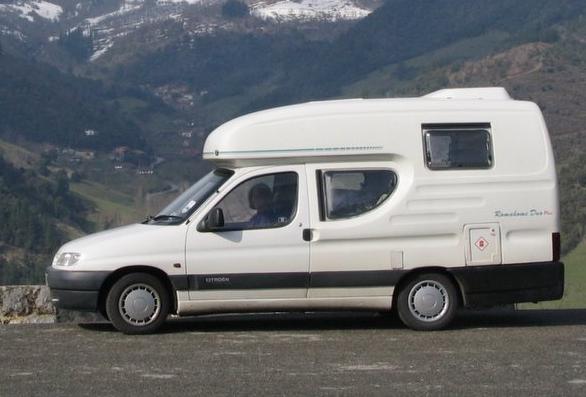In February we will be heading for Trindad leaving Modestine home alone as we escape the worst month of an English winter. Essential bedtime reading for us is now provided by the Rough and the Insight guides to Trinidad and Tobago. Our sleeping dreams are filled with the sound of hummingbird's wings whirring as they sip nectar from the brightly coloured flowers we are certain will surround our accommodation high in the rain forests to the north of the island.
We have not been yearning for years to visit Trinidad and it is an area about which we are woefully ignorant, but when our friend David suggested we accompany him on a three week visit to the island in February we accepted eagerly. What is retirement for, if not for seizing unexpected opportunities as they present themselves? David is a biologist with an interest in social insects, especially ants and bees. For some years he lived in Trinidad and has developed a particular area of expertise in the Trinidadian leaf-cutter ants to be found in the rain forests there. So we will be joining him and a butterfly enthusiast friend, Carl, at the Simla scientific research station located in the grounds of the Asa Wright Nature Centre, renowned as a centre for eco-tourism and the perfect location for the observation of exotic tropical birdlife.
Our visit coincides with the famous Trinidad carnival in the capital, Port of Spain, held on 19th and 20th February when the streets will be virbant with colour and crowded with floats, steel drums, dancers, musicians and razzmatazz.
With the beautiful island paradise of Tobago only a twenty minute flight away there will be more than sufficient to keep us entertained during our stay.
Trinidad is hot and humid but until we are there we don't know how we will stand up to the climate. In the forest there should be shade and we have read of the cooling trade winds. However, each island of the Caribbean seems to have its own atmosphere and climate. Trinidad is perhaps the least touristy with much in the way of industries, petrol refineries and a massive pitch lake. It does too have beaches reputedly as beautiful as any to be found on St. Lucia, Martinque or Tobago.
Trinidad, in common with the other islands of the Carribean, has an unsavoury past linked to the slave trade when from the 16th century Spanish, French and British land owners imported African slaves to work on the sugar plantations. Later, in the 19th century, following emancipation, east Indians, and later even the Chinese, came to work on the fields and plantations. If our guidebooks are correct, the result is that today Trinidad would seem to be a true melting pot of different nationalites, creeds and colours who have intermarried and live harmoniously together, a real "Rainbow Nation". Catholics, Hindus, Rastafarians and African tribal folklore all have their place in the island. To the north, where we will be staying, can be found the last vestiges of the original inhabitants, the Caribs. The word Cannibal is apparently derived from this, though such activities are now lost back in the mists of time. Although sugar cane is still grown, the wealth of Trinidad today is based on the massive reserves of oil discovered since independence which made the country rich overnight and ensures employment levels remain higher than the norm in the Caribbean.
Our observations in Trinidad will be very different from those in Europe. No Baroque churches or architectural spendours this time. Instead there will be an abundance of wildlife and plants: howler monkeys, snakes (including four poisonous varieties), huge spiders, virgin rainforests, sandy, palm-fringed beaches, coral reefs, limpid clear waters, fishes, freshwater swamps, hundreds of species of birds including scarlet ibis and oil-birds, insects, shrubs and flowers.
Most of all though, we expect the people we encounter to provide the most colourful element in our blog. With such wonderfully cheerful, larger than life personalities, and such a laid-back approach to life, and at a time of high excitement surrounding the carnival we don't expect to be bored while we are there!
So if you fancy travelling with us, stay tuned. Those of you already on our list from last time will notify whenever we load on new text and photos, others can email us if they wish to be added.
skip to main |
skip to sidebar

8th to 28th February 2007
About
An observation of Trinidad, its people, carnival, sights, wildlife and natural resources observed during a visit to the rain forests to discover leaf-cutter ants (bachacs)in the northern range.
About Me

- Jill, Ian and Modestine
- Genuinely interested readers and enquirers may email us at jillmaxted@hotmail.co.uk
Earlier postings
Links to other Maxted blogs
- Maxted Travels with Modestine 1, 2005-6
- Maxted Travels with Modestine 2, Spring 2007
- Maxted Travels with Modestine 3, Autumn 2007
- Maxted Travels with Modestine 4, Spring 2008 - Autumn 2010
- Maxted Travels with Modestine 5, 2011-2012
- Maxted Travels, Wallowing in the Maya, 2008
- Maxted Travels, Northern Spain, 1995
- Maya miscellany 2008
- Maxted Miscellany of odds and ends
- Manhole Miscellany
- Exeter Working Papers in British Book Trade History